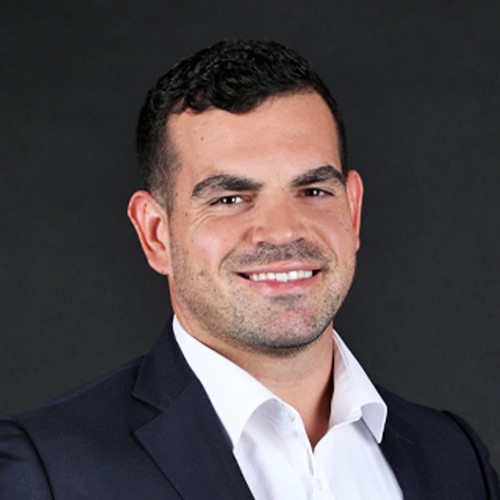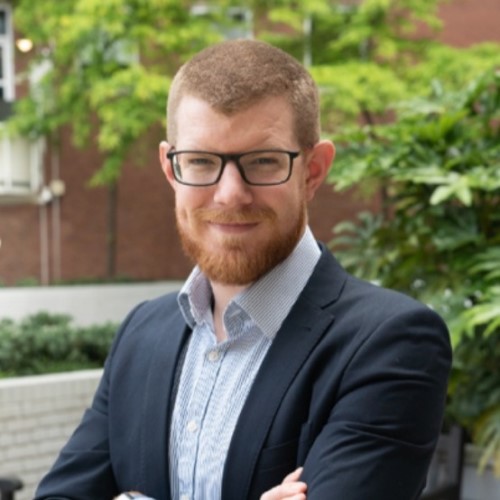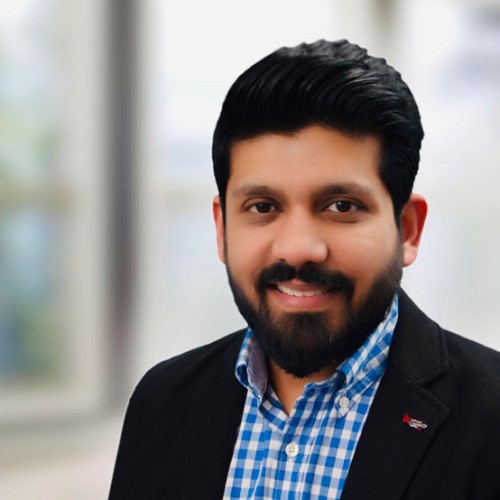Global Online MBA participants discuss their most impactful modules
Participants and alumni of the Global Online MBA share their experiences of the modules that have had the greatest impact on them in their MBA journey.
Anele Ndluvo – Operations Management
 As someone who has always thrived in technical and analytical roles, I found my niche in problem-solving and embraced the mantra of constant improvement. However, as my career evolved into more hands-on operational roles, I recognised a growing need to deepen my academic foundation in this area. Operations Management at Warwick Business School (WBS) wasn't just a core module in my MBA programme; it was a key part of my professional journey, offering insights that promised to significantly enhance my expertise.
As someone who has always thrived in technical and analytical roles, I found my niche in problem-solving and embraced the mantra of constant improvement. However, as my career evolved into more hands-on operational roles, I recognised a growing need to deepen my academic foundation in this area. Operations Management at Warwick Business School (WBS) wasn't just a core module in my MBA programme; it was a key part of my professional journey, offering insights that promised to significantly enhance my expertise.
The year 2022 seemed to test my resolve. A leg fracture during a holiday meant missing an exciting session at The Shard on Operations, and later, quintessential British snowfall threatened to derail my travel plans. Undeterred, I embarked on a snowy 120-mile drive from London to Coventry, bracing myself for what I anticipated to be a week of theoretical monotony, punctuated by endless cups of lackluster coffee.
To my delight, the Operations Management module emerged as a highlight of my MBA experience. The lecturer, Ross, was a dynamic mix of industry savviness and academic depth, making each session both engaging and insightful. The course opened my eyes, transforming my perception of Operations Management from a mere academic subject to a critical business lever. The richness of the discussions, fueled by the diverse backgrounds of my classmates, added a valuable dimension to our learning.
We delved into areas like process design, quality management, and lean thinking, going beyond the conventional curriculum. Our group projects, particularly the in-depth market research at Pret (which almost became a second office), were not just educational but also instrumental in forging lasting bonds and insights. This wasn't just a class; it was an immersive experience that fundamentally altered my approach to operations management.
Now, having completed all 12 modules of my MBA, I reflect on this experience as a pivotal moment in my academic journey. It has greatly influenced my dissertation, which explores the intersection of operations management and artificial intelligence. This module did more than just meet my expectations; it exceeded them, reinforcing my passion for operations and highlighting its transformative power in the business world.
Paul McVeigh - Economics of the Business Environment
 I can honestly say that the Global Online MBA has been one of the best experiences and life decisions I’ve made to date. Having the opportunity to learn and work with professors and peers with an unrivalled depth and breadth of experience on a global scale has been truly perspective-shifting. Besides the knowledge and experience gained from the modules themselves, my journey has taught me a great deal about myself and what one can accomplish when their personal narrative is challenged.
I can honestly say that the Global Online MBA has been one of the best experiences and life decisions I’ve made to date. Having the opportunity to learn and work with professors and peers with an unrivalled depth and breadth of experience on a global scale has been truly perspective-shifting. Besides the knowledge and experience gained from the modules themselves, my journey has taught me a great deal about myself and what one can accomplish when their personal narrative is challenged.
I’ve grown to appreciate the role finance plays in grasping the underpinnings of successful businesses. However, from an outsider’s perspective, finance seems to be an esoteric enigma.
Economics of the Business Environment offered an additional lens of evaluation on the impacts of macroeconomic and microeconomic trends and cycles. GDP, exchange rate, raw material and oil price fluctuations all impact a firm's Operations Management and subsequent vulnerabilities. These factors are particularly pertinent today, given the unanticipated impact of COVID-19 on supply chains and just-in-time manufacturing processes.
I found the application of theory to the final assignment incredibly valuable. I have a background in the agricultural industry and analysed two firms in the fast fashion retail space. This allowed me to develop an appreciation for a completely different industry, business models and the strategies employed by each to escape the perils of strategic hell.
Michael Brooman – Operations Management
 One thing that I can be sure of whilst having studied on the Global Online MBA, is that there isn’t a single module we have done so far that isn’t a strong contender for my favourite module, and like having a favourite movie or song, it changes with my mood and situation.
One thing that I can be sure of whilst having studied on the Global Online MBA, is that there isn’t a single module we have done so far that isn’t a strong contender for my favourite module, and like having a favourite movie or song, it changes with my mood and situation.
Every module we have completed so far has had almost instant applicability to my day-to-day role, and I have immediately felt more comfortable talking in different situations, be it talking about net present value for investments or mesh structures for organisational improvement.
Every module leader has been engaging and supportive and presented the modules in different ways that keep the learning interesting and informative. I enjoyed the lessons on Financial Management - it struck a great balance of text, practical learning and in-depth explanations walked through in a video. I felt that this mix best suited my way of learning, as I was able to do work during travel where internet access may be limited.
So, what has been my favourite module so far? For me, it has to be Operations Management, closely followed by Financial Management. Operations Management had the advantage of kicking off at the Shard, and the face-to-face lectures with Ross were really interesting, fun and engaging. The module included a group project that was “real” and allowed us to flex our newly engaged MBA muscles, and for my group, we even got to eat at Five Guys three days in a row for “research”.
The assignment, the pace, the group project and the subject make Operations Management my favourite module so far, and a high bar was set. You can probably tell that I’ve enjoyed every module so far, and have surprised myself with how much I’ve enjoyed what I thought was going to be quite a challenging few years.
Zeeshan Sheikh – Economics of Wellbeing
 The Economics of Wellbeing elective module of my Global Online MBA helped me a great deal in transforming my perspective on life during several triggering points and ignited my cognitive thinking throughout my learning journey.
The Economics of Wellbeing elective module of my Global Online MBA helped me a great deal in transforming my perspective on life during several triggering points and ignited my cognitive thinking throughout my learning journey.
The great thing about this module was its delicate balance between theories and empirical studies of well-being economics, including the practical implications in the workplace, and more broadly in society. I learned about the importance of well-being and happiness as an economic outcome, as well as ways of measuring well-being and its determinants. The knowledge I gained broadened my understanding of the factors that determine an individual's subjective experiences, and exploring how this knowledge can be applied in business and personal life.
Identification of the main determinants of my life satisfaction, emotional well-being and feelings of meaningfulness through exploring a range of empirical studies was eye-opening for me. Influence of the relative income in our lives and moods, attention and forecasting effect, social norm theory and how we adopt hedonically to different life events over time, are some of the highlights that forced me to change my standpoint towards life.
With the help of longitudinal research studies, I learnt how people use social comparisons to enhance or decrease well-being by following upward or downward social comparisons. Inevitably, our intrinsic need to compare ourselves with others can drive us to make sub-optimal choices for our well-being, such as choosing to work longer hours and spending more time commuting, just because we do not want to be left behind by other people who are similar to us.




 X
X Facebook
Facebook LinkedIn
LinkedIn YouTube
YouTube Instagram
Instagram Tiktok
Tiktok